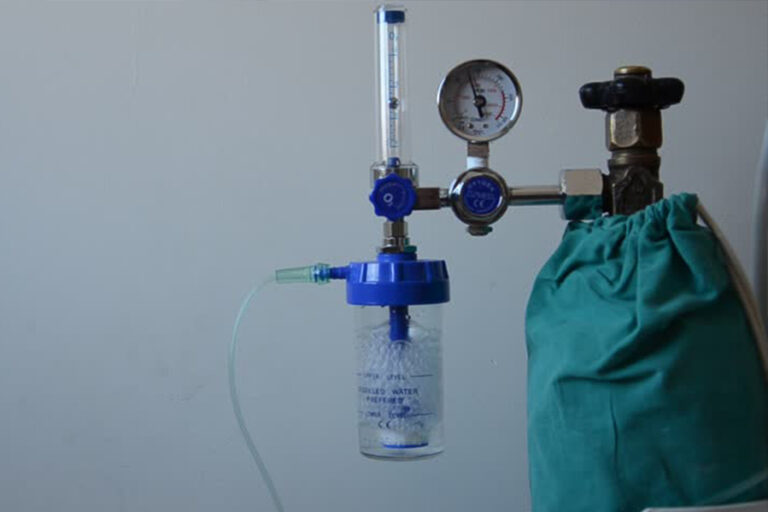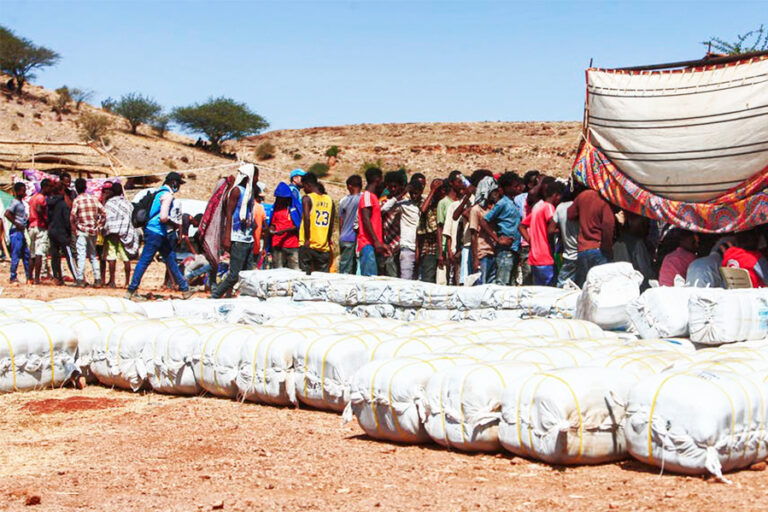Ministry of Trade and Industry (MoTI) approves extra sum of price adjustment for fuel companies for the compensation that occurred in relation with new payment modality, while the adjustment will be covered from petroleum stabilization fund rather than the public.
On the letter that MoTI issued on Wednesday March 17 and sent to Ethiopian Petroleum Supply Enterprise (EPSE), it stated that the enterprise and Ministry of Finance informed MoTI that the cost compensation that related to the new cash based payment modality for oil companies needs further adjustment.
It reminded that on February 22, EPSE had written a letter to MoTI that indicated the tariff adjustment with regards to the implantation of the payment modality. Further the letter of MoTI that was signed by Eshete Asfaw, State Minister of MoTI, added that the tariff adjustment was applied as of March 6 and the additional cost was covered by the public.
For instance four cents have been adjusted on benzene product which was covered by the consumers.
However, as per the clarification, the enterprise secured from Commercial Bank of Ethiopia a bank guarantee arrangement that considers which companies shall access finance to undertake the new modality. Moreover, the financing cost shall be calculated by 90 days rather than the previous one year that EPSE had calculated for the new tariff adjustment.
Since the new clarification, the tariff adjustment shall have additional costs; for instance it will be increased by 13.74 cents per liter for benzene and reached 17.74 in total with the previous adjustment that was four cents.
As per the new revision, MoTI has directed EPSE to revise the tariff for the sake of the benefit of companies which are supposed to cover their cost that occurred due to the new payment arrangement.
However, in this case MoTI has announced that the additional new cost for instance 13.74 cents for benzene per liter will be covered by the petroleum stabilization fund.
Eshete told Capital that this time the government has decided to cover the additional cost from the fund rather than impose on the public.
The letter said that the revised rate will be applied as of March 24 and compensate the cost of companies that paid from March 10 to 22 with the new rate.
Due to different reasons the government has decided to undertake a new path on the oil supply into advance payment. Under the new scheme oil companies shall be involved on cash base trade with EPSE. The new scheme has commenced by 10 percent cash payment or bank guarantee.
The information Capital obtained indicated that starting from this week, companies which are about 36, are already signing the new contract arrangement with EPSE under the new arrangement.
Oil companies get fund to cover financial cost
Unexpected incidents leave trucks stranded in Djibouti
Two unforeseen incidents temporarily delay the flow of trucks that carried Ethiopian import cargos from Djibouti in the past one week, Capital learnt.
The information that Capital obtained from truck companies’ agents indicated that in the week, trucks have been stranded for days since the Djibouti Bureau of Ethiopian Customs Commission temporarily halted issuing a permit that required entering into Ethiopia.
One of the truck companies’ head told Capital that his company, which manage some of the trucks have faced delay for about four days due to the customs permit issue.
He said that it is a common occurrence for a delay of one or two days in Djibouti due to different reason that may not directly be related with customs issue, “But the current case is different and the delay has extended,” he expressed.
Agents told Capital that they have been informed by their representatives regarding the issues and was linked to the internet connection termination at the branch office.
Aliyi Abdella, Head of Djibouti Bureau of Ethiopian Customs Commission, confirmed the said problem had occurred in Djibouti which led trucks to be delayed for days.
Aliyi told Capital from Djibouti that the incident which transpired was unforeseen since the technical difficulty was in relation with the telecom service termination at his office.
“On Saturday March 13, in the afternoon, internet has been down for half day which has affected our activity but it was since then reconnected on Sunday,” he said.
According to Aliyi, he was informed by Djibouti Telecom that the problem had occurred on technical issues. “They know that our service is supposed to be active throughout the year for 24 hours a day but it was a technical problem that occurred on the internet connection to which they apologized for the interruption,” he said, adding that the problem extended for half day because the incident occurred on the weekend when some offices were not active when the incident transpired.
He declined for the rumor that the termination occurred in relation with unsettled bill. “Our telecom service is unlimited and the bill is paid at the beginning of the budget year for every year for the sake of uninterrupted operations on such kind of external issues,” he added.
The customs branch is open for 24 hours seven days a week to provide service for trucks that require getting a permit to transport the cargo to the country.
Mule Abdissa, Bureau Head of Ethiopian Customs Commission, told Capital another system interruption had occurred on Tuesday March 16 which affected the custom’s activity all over its branches.
“Tuesday’s incident occurred in relation to power interruption at the central network server of Ethiopian Customs Commission which affected the branches of the commission not only in Ethiopia but also in Djibouti,” Mule explained.
He said that the problem was resolved in the evening of the same day.
Aliyi has also given a confirmation that their activity in Tuesday had been affected because of the problem that occurred at the centre in Addis Ababa.
He said that his office in collaboration with Djibouti Customs is working day and night to accelerate the logistics activity and in transporting cargos to Ethiopia.
He reminded that meanwhile Friday and Saturday are a weekend at Ethiopia’s major logistics outlets; relevant logistics offices and ports in Djibouti are working in the weekends unlike other activities.
“Other regular offices like telecom may be closed on the weekend but the ports and other logistics offices are not closed all over the week,” he added.
According to the branch head, Djibouti Bureau is issuing a permit on average within five minutes time and drivers shall get service anytime in a day but mainly they are coming up to 10 p.m.
“From time to time we have accelerating our operations and up to 1,000 permits a day are given for cargos transported to Ethiopia,” he added.
Almost all of Ethiopian cargos loaded on vessels are transporting to the country via Djibouti that is connected on three roads networks and railway as well. Most of the ports in Djibouti are modern and some of them are recently built.
Ministry targets to increase oxygen production following concerns
Shortage of respiratory equipment has become a major concern following the increasing number of people entering the intensive care units whilst to this end the ministry is planning to increase the country’s oxygen production capacity by 81 percent by building an oxygen plant in order to combat the problem.
In related news, the country is under process to receive the second phases of 4 million doses of AstraZeneca vaccine from the COVAX facility in the coming weeks.
“In recent times critical patients of COVID have dramatically increased. Shortage of rooms for critical patients, respiratory equipment and oxygen has become a challenge,” said Lia Tadesse, Minister of Health on a media briefing on Tuesday 16th of March 2021. She warned that COVID-19 infections continue to rise rapidly in the country due to slack precautions among the public.
“The increasing number of people admitted to incentive care units has resulted to shortage of respiratory equipment in the center,” said Wuletaw Chane /MD/ head of the Millennium hall COVID center. As he said, as of the last Thursday there were about 250 patients in the center who were in need of oxygen but only 75 percent of them were able to get oxygen due to the shortage.
Similarly, in combating the pandemic, the Ministry of Health on Saturday, March 13, 2021 had launched nationwide vaccination in the nick of time as the spread of the pandemic has reached 20 percent contamination, which is worse than ever.
Currently, the country has a capacity to produce 1,800 metric cube of oxygen per hour, and the ministry is targeting to raise this production capacity to 3267 metric cube of oxygen per hour.
Due to the increasing number of the cases UK, and Oman has banned travelers from Ethiopia and on similar lines, previously, China had restricted travelers to stay 7 days at Ethiopian skylight hotel before traveling to China.
Tigray region IDPs exceed a million
Internally Displaced Persons (IDPs) in Tigray region have surpassed the one million mark. The dire situation in the northern part of the country, Tigray region, remains concerning as the number of IDPs soars from day to day with conflict continuing in some parts of the region. The total population of Tigray region is estimated to stand at 5.5 million of which more than 1 million have been internally displaced by the current situation in the region.
“Violence and lack of assistance in the region especially in rural areas have driven displacement of people searching for safety and aid in the main towns across Tigray,” said Etenesh Negussie, communication head of the new interim government of the region.
“Up to this week, around 92,000 IDPs have entered the city of Mekelle,” highlighted Etenesh. In addition according to the Norwegian Refugee Council /NRC/, over 400,000 people fleeing intensifying conflict in western Tigray have recently arrived in Shire adding that 4.5 million people in Tigray region require humanitarian assistance.
As she said, there is a continues displacement of people from the western part of the region due to the tension between Amhara and Tigray ethnic groups, also the strain around Eritrea boarder and the unstopped conflict around the southern part of the region has aggravate the situation.
Even though it is becoming difficult to assist and support all the IDPs, it has been reported that people in the region are trying to reach towns where assistance is being delivered. Similarly, as Etenesh told Capital, the regional government is working to build camps for the internally displaced persons in the town of Mekelle.
Thousands of people, who have been sheltering in schools and universities and already living in extremely concerning conditions, are facing the prospect of relocation within one month due to back-to-school plans.
“Humanitarian partners are facing significant difficulties in identifying suitable alternative sites for displaced people and are stressing the urgent need to provide emergency shelter, water, sanitation and hygiene services, as well as supporting the management of settlements.
To date, nearly 62,000 refugees have been registered at the crossing points along the Sudan-Ethiopia border. To this end, humanitarian response efforts are focused on filling the existing gap in service delivery in the reception facilities.
It has been over four months since the law enforcement operation started in the Tigray region following the 4th of November 2020 attack on the Northern Command of Ethiopian National Defense Force (ENDF) by the Tigray Liberation Front.
After three weeks of military offense in Tigray region to enforce law and bring in the so called criminal group of Tigray Peoples Liberation Front /TPLF/ leaders on November 28, the government has announced the battle came to an end after taking Mekele, the capital city of the region, from the so called criminal group of TPLF.
It is to be recalled that the House of Federation had endorsed to establish an interim administration in Tigray Regional State following the defiant TPLF. The Interim Administration was established with the participation of independent and neutral scholars and political parties operating in Tigray.
Prime Minister Abiy, on the 3rd of March, announced that aid agencies can operate in the region by providing a notification to the Ministry of Peace. Following this significant development, organizations have begun notifying the Ministry and are working to urgently improve access to rural areas.
Following the transition to a flexible notification system for access, several organizations have deployed international staff to Tigray to scale up of the response.
Despite some progress in accessible areas, many people remain in hard-to-reach areas due to insecurity, logistical and administrative hurdles, where assistance is needed.






